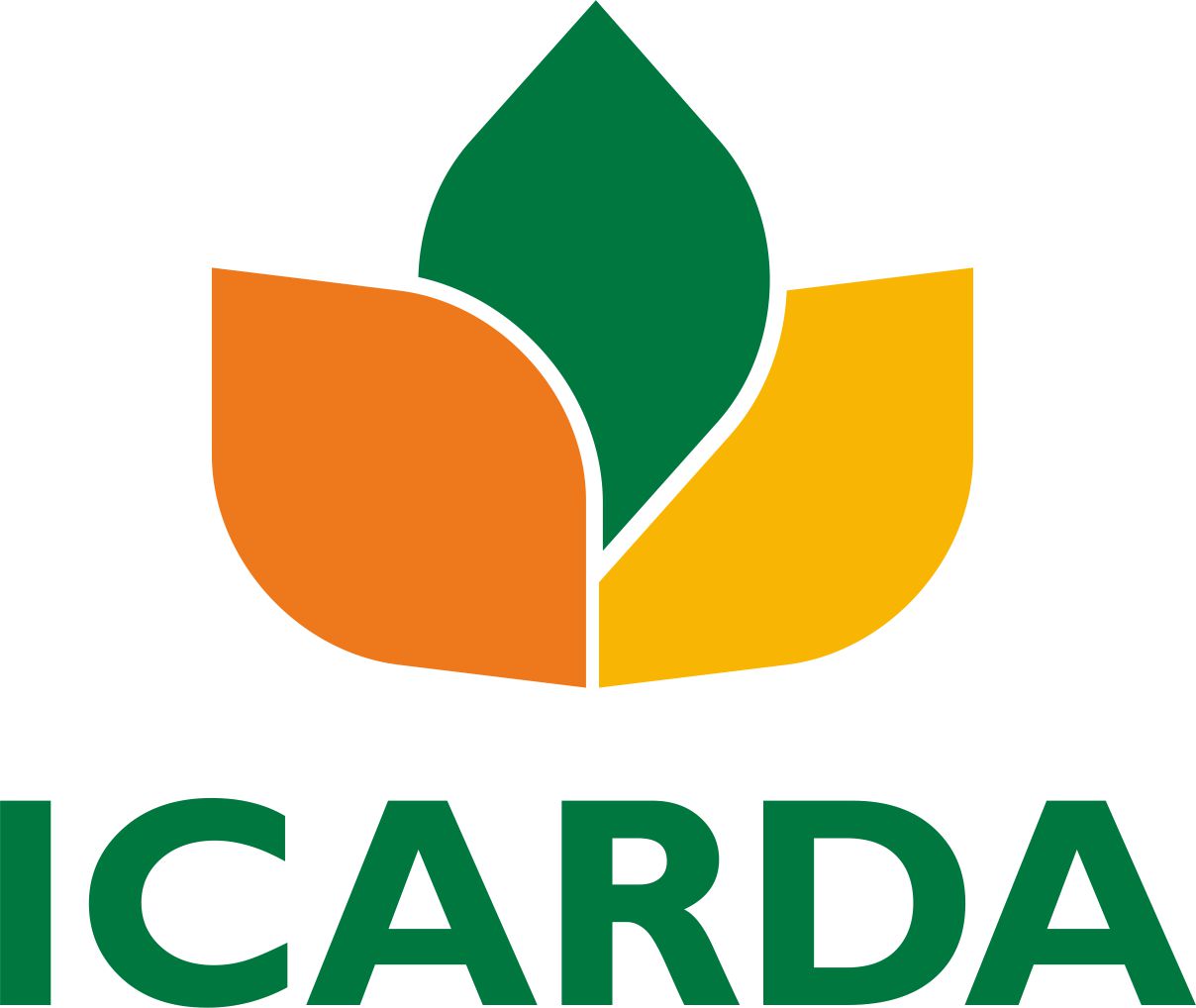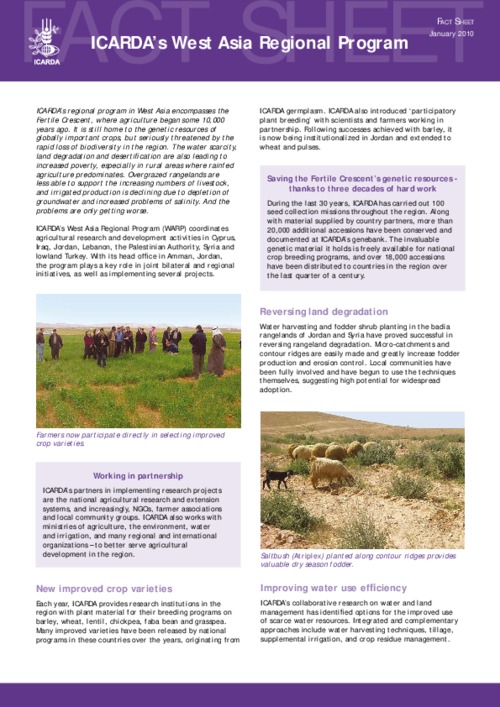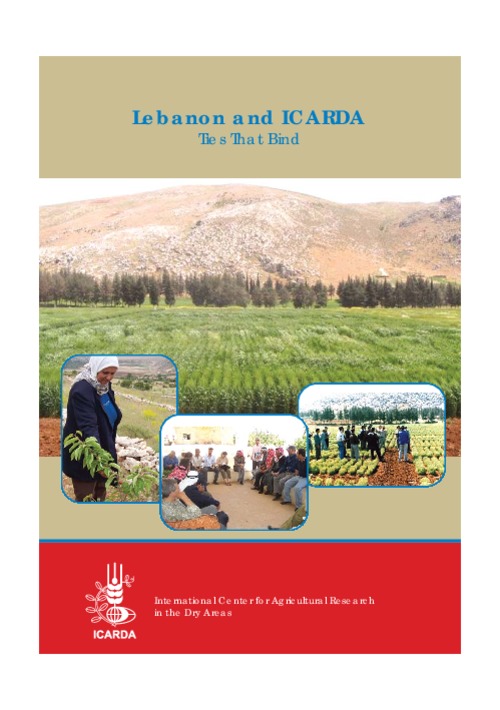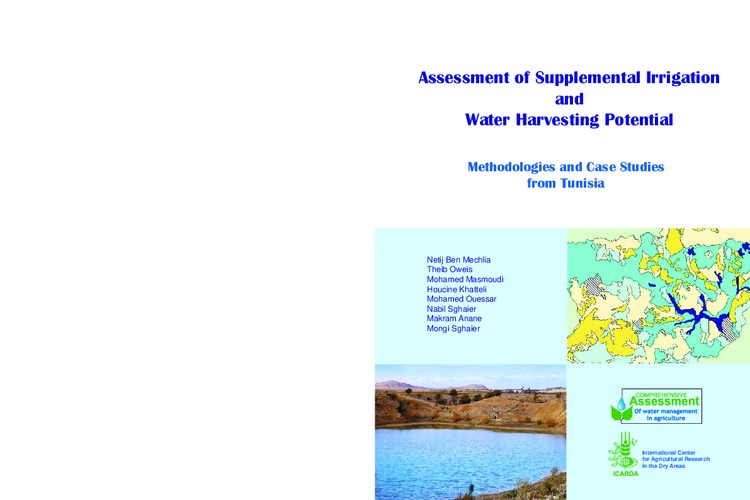Location
The International Center for Agricultural Research in the Dry Areas (ICARDA) was established in 1977. It is one of 15 such centers supported by the CGIAR. ICARDA’s founding mandate to promote agricultural development in the dry areas of developing countries remains highly relevant today.
ICARDA works with a tight focus on the problem-solving needs of resource-poor farmers, achieving this through the in-field delivery of its research outputs. Although global food production has increased by 20 per cent in the past decade, food insecurity and poverty remain widespread, while the natural resource base continues to decline.
International research centers such as ICARDA, which have helped drive previous improvements, continue to deliver new technologies to support sustainable growth in agriculture, and crucially, to work with a wide range of partners to accelerate the dissemination of these technologies.
ICARDA’s biggest strength is its staff – 600 highly skilled men and women from 32 countries. Our research and training activities cover crop improvement, water and land management, integrated crop-livestock-rangeland management, and climate change adaptation.
Other interventions include:
- Water harvesting - supplemental irrigation and water-saving irrigation techniques
- Conservation agriculture methods to reduce production costs and improve sustainability
- Diversification of production systems to high-value crops – horticulture, herbal and medicinal plants
- Integrated crop/rangeland/livestock production systems including non-traditional sources of livestock feed
- Empowerment of rural women – support and training for value-added products.
The ICARDA genebank holds over 135,000 accessions from over 110 countries: traditional varieties, improved germplasm, and a unique set of wild crop relatives. These include wheat, barley, oats and other cereals; food legumes such as faba bean, chickpea, lentil and field pea; forage crops, rangeland plants, and wild relatives of each of these species.
ICARDA’s research portfolio is part of a long-term strategic plan covering 2007 to 2016, focused on improving productivity, incomes and livelihoods among resource-poor households.
The strategy combines continuity with change – addressing current problems while expanding the focus to emerging challenges such as climate change and desertification.
We work closely with national agricultural research systems and government ministries. Over the years the Center has built a network of strong partnerships with national, regional and international institutions, universities, non-governmental organizations and ministries in the developing world and in industrialized countries with advanced research institutes.
THE ‘DRY AREAS’
Research and training activities cover the non-tropical dry areas globally, using West Asia, North Africa, Central Asia and the Caucasus as research platforms to develop, test, and scale-out new innovations and policy options.
Dry areas cover 41 per cent of the world’s land area and are home to one-third of the global population. About 16 per cent of this population lives in chronic poverty, particularly in marginal rainfed areas. The dry areas are challenged by rapid population growth, frequent droughts, high climatic variability, land degradation and desertification, and widespread poverty. The complex of relationships between these challenges has created a "Poverty Trap."
Members:
Resources
Displaying 391 - 395 of 431Gathering Wisdom from the Field: Participatory Technology Development in Upper Karkheh River Basin, Iran
CGIAR Challenge Program on Water and Food
ICARDA's West Asia Regional Program
ICARDA’s West Asia Regional Program (WARP) coordinates agricultural research and development activities in Cyprus, Iraq, Jordan, Lebanon, the Palestinian Authority, Syria and lowland Turkey. With its head office in Amman, Jordan, the program plays a key role in joint bilateral and regional initiatives, as well as implementing several projects.
Lebanon & ICARDA
Lebanon is ICARDA’s second host country and the country that witnessed the launch of the center in the mid-1970s through the ALAD program of the Ford Foundation. This process culminated in 1977 with a host country agreement signed with the Government of Lebanon in 1977, which established ICARDA here as an International Center.
Africa and ICARDA
ICARDA has long-standing outreach programs in North Africa, the Nile Valley, and the Red Sea region (Fig 2). In its current strategic plan, the Center will extend its work to the drylands of Sub-Saharan Africa.
Assessment of Supplemental Irrigation and Water Harvesting Potential: Methodologies and Case Studies from Tunisia
An innovative, low-cost methodology was developed to assess the potential of sites in Tunisia for supplemental irrigation and water harvesting. The methodology, which uses commonly available technologies and information such as remote sensing and a Digital Elevation Model (DEM), was developed and tested using newly constructed hill reservoirs (used to capture surface runoff) and traditional water harvesting systems.







